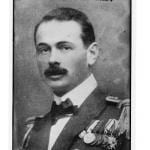 I asked for guest voices and today I am pleased to introduce a voice that with grace will become a regular: Jill Bergen.
I asked for guest voices and today I am pleased to introduce a voice that with grace will become a regular: Jill Bergen.
Jill Elizabeth Bergen is a writer and educator with nearly twenty years of experience in classical education. She is a member of the Torrey Honors Institute and holds an MA in Education with an emphasis in Philosophy of Education. She and her husband, Bradley, reside in Southern California.
She mentions our friend and fellow student, gone to glory, Angie Good. May her soul Rest In Peace.
Bergen writes on doing what we know:
Inspired by my friend Angie Good, who has been in heaven twenty years this month. She knew, and she acted.
A favorite teacher of mine once told us that unless we could explain an idea to our grandmother, we didn’t actually know it. Apart from possibly underestimating our grandmothers, this was true, as being able to articulate an idea clearly and succinctly indicates a grasp of said idea. But articulation only goes so far. He later posed a much deeper question that addressed the extent of our knowledge, or lack thereof: if we believed something, why didn’t we act like it?
I’m going to assume, for our purposes here, the common definition that knowledge is simply justified true belief. A thing we think is true is knowledge when we have good reasons for thinking it true, and it in fact is the case. Additionally, I’ll assume that reasonably thoughtful people believe things because they think they are true, and they have some decent justification for them. Therefore, if our justified beliefs are true, they are knowledge. So, the question could be rephrased as, if we know something, why don’t we act like it? In addition to articulating knowledge, is the real evidence of personal knowledge action?
I have no trouble believing my office chair will hold me; in fact, I would assert that I know the chair will hold me, barring sabotage, and my cat—the only household member devious enough to be a saboteur—is unlikely to know how to use a screwdriver. So, I sit. I don’t waver in thought; I just do it. My knowledge of the chair’s safety produces definitive action.
Belief in God entails certain other beliefs. As Christians we believe that, for instance, “If a brother or sister is poorly clothed and lacking in daily food, and one of you says to them, ‘Go in peace, be warmed and filled,’ without giving them the things needed for the body, what good is that” (English Standard Version James 1:14-16)? Why is it so easy then, knowing that we should help, to pass people on the street who need food and shelter and not help? Why would we ever ignore knowledge? Is it that we do not actually know that charity is good, or is there a competing desire or belief that we use as an excuse to act inconsistently with our knowledge? What does it mean to claim to know something if we cannot do what it entails?
What would happen if we acted on all our beliefs like I act on the knowledge my chair will hold me? Granted, there are a number of nuanced issues here—the relationship between our belief and knowledge could be tenuous, or we could believe something but have trouble living it out for various reasons—but the question remains: if we know something, why don’t we act like it? Are we not acting like someone who refuses to sit in a chair they know is sound? Thankfully, God is merciful, because most of us have failed to act as if we know our beliefs are true. The important thing is to figure out why—whether it truly be a lack of knowledge or a failure to act on knowledge—so we can start providing active evidence that we know truth.












